for Sirens and Sylphides |
Artists Collection Education Mineralshows Publications Tools Contact Back to Home | |||
| Pearl & shell rings in yellow gold 0.750
Offer to your favorite siren or sylphide.
| ||||
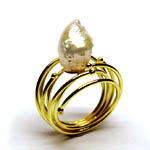 S 01 CHF 1'250.- ring size No 49 7.1 grammes |
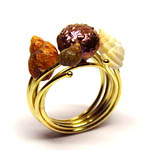 S 02 CHF 1'250.- ring size No 53 7.1 grammes |
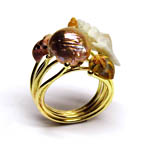 S 03 CHF 1'250.- ring size No 53 8.0 grammes |
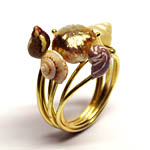 S 06 CHF 1'250.- ring size No 56 7.7 grammes | |
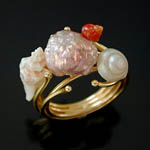 S 09 CHF 1'250.- ring size No 53 7.5 grammes |
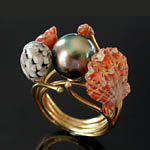 S 10 CHF 1'750.- ring size No 50 9.2 grammes Black Tahiti Pearl 9.04 ct |
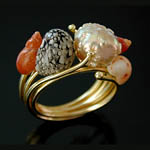 S 11 sold |
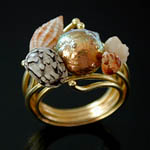 S 12 sold | |
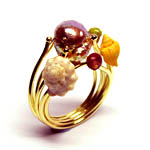 S 07 CHF 1'250.- ring size No 52 7.2 grammes |
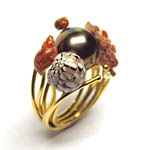 S 10 |
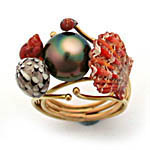 S 10 |
||
All jewels are signed with this registered trademark by Hubert Heldner | ||||
| orders & inquiries | ||||
| The erotic power of the voice, particularly when singing and accompanied by music, is empitomized in the myth of the Sirens who lured sailors to their death. The Lorelei who haunts the rock on the Rhine near St Goar, celebrated in the poem by Heinrich Heine (1797-1856), and the noumerous mermaid legends, are variations on the same theme. In the greek myth, crafty Odysseus - warned by an other enchantress, his lover the nymph Circe - cheats the Sirens by having himself tied to the mast of his ship as it passes Sicily, while his companions stop their ears with wax. | In some versions of the Siren myth, the sea nymphs imitate the voices of loved ones. source: Plaisirs d'amour by Elisabeth Nash
Mermaids entice human lovers with their songs of enchantment. They cause ship-wrecking storms and are moste frequently seen combing their long hair whilst admiring themselfs in mirrors. Sylphides are the freshwater counterpart of the Sirens and are said to live in lakes, rivers and ponds. | |||
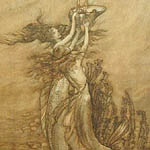 "Jewels from the deep" Book illustration perhaps connected with Undine. Painting by Arthur Rackham 1909 |
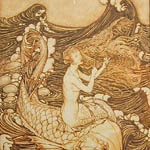 "....certain stars shot madly from their spheres to hear the sea-maid's music," Illustration of A Midsummer Night's Dream. Painting by Arthur Rackham 1908 |
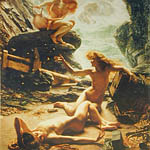 "The Cave of the Storm Nymphs" Painting by Sir Edward Poynter 1836-1919 |
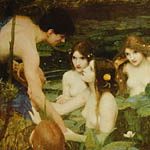 Detail from "Hylas and the Nymphs" by John William Waterhouse | |